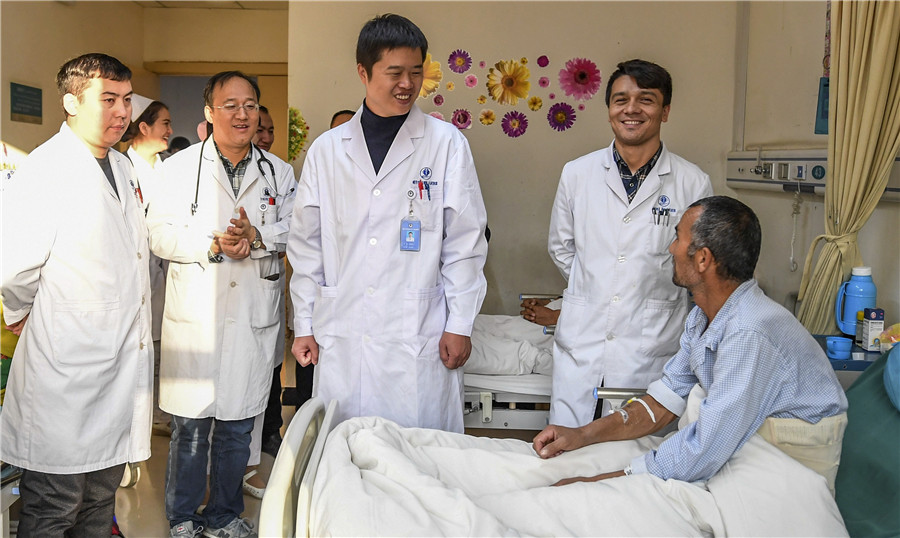Volunteer medics a tonic for rural residents


Qin, from the Yumin health commission, said the county still has a severe shortage of skilled doctors. Of the 400 medical staff members, only about 110 hold accepted qualifications, while the rest are "barefoot doctors" (locals who have received a basic medical training that enables them to treat minor ailments), he said.
Although more talented people, including medical school graduates, have joined hospitals and clinics in the county, the number and quality still fail to satisfy demand, he said.
Qin suggested that new policies should be formulated to attract more qualified personnel to townships and villages, such as special programs to recruit medical graduates to township health centers. He also urged improvements to job security and salaries.
In recent years, improvements in health services and medical insurance policies in Xinjiang have seen a marked reduction in the number of people falling into poverty as a result of illness.
Ma Zhilan, a 44-year-old herder in Yumin, said government subsidies mean she only pays 290 yuan a year for medical insurance, and up to 80 percent of her medical bills are reimbursed.
"All the locals are covered by the program, including herders, which has greatly reduced our medical expenditure," she said.
"In the past, medical bills pushed people into poverty, but in recent years that has become rare. Now, most people even choose to go to bigger hospitals in nearby cities for diagnosis and treatment."
- Viral video shows meteor streaking over Helan Mountains in Ningxia
- China innovates network technology, achieving efficient data transmission
- More international maritime disputes turn to China's courts
- Chinese researchers inject AI power to evidence-based medicine
- Harbin Ice and Snow World opens with expanded park
- Visa-free transit policies spur surge of foreign visitors





































